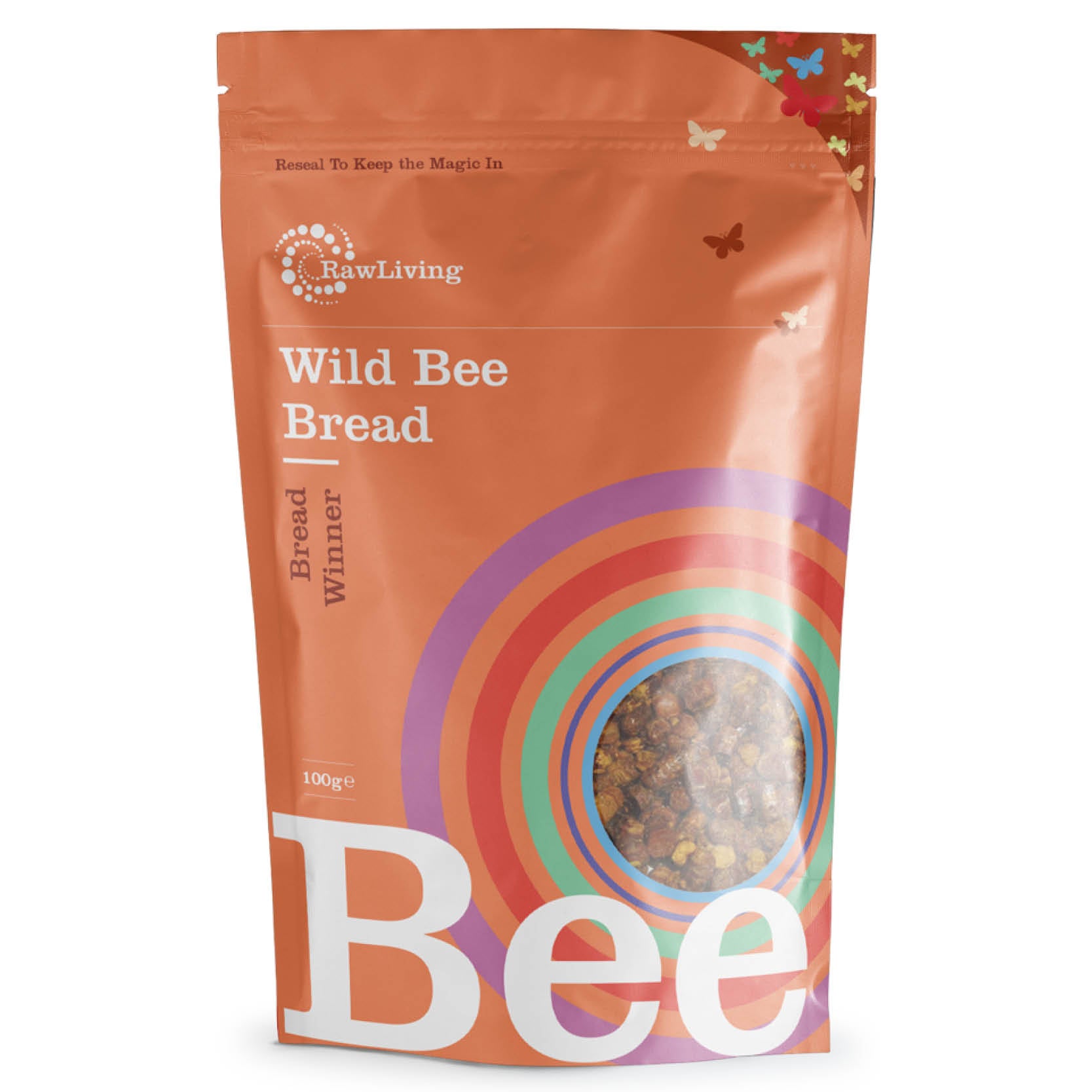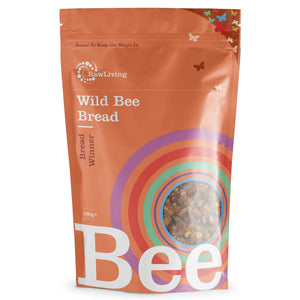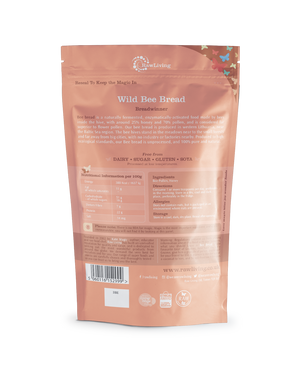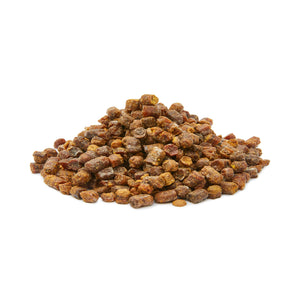Wild Bee Bread - Nature's Fermented Super Food
Bee Bread is a rare and powerful enzymatically-activated superfood, naturally fermented by bees inside the hive. Made from 70% pollen and 25% honey or nectar, this highly bioavailable bee product is considered far superior to flower pollen, with significantly enhanced protein absorption and nutrient density.
Pure & Sustainably Sourced from Pristine Lithuanian Meadows 🐝🌿
✔️ Harvested in Western Lithuania, near the Baltic Sea, far from cities, factories, and pollution
✔️ 100% pure & natural – No processing, no additives, no antibiotics, and no pesticides
✔️ Produced to high ecological standards, ensuring ethical and sustainable beekeeping
✔️ Free from gluten, corn, wheat, soya, dairy, and GMO ingredients
The Unique Fermentation Process – A Living Nutrient Powerhouse
When bees return to the hive with fresh pollen, they store it in honeycomb cells, filling the bottom two-thirds with pollen and sealing the rest with honey and wax. This creates an anaerobic environment where a synergistic blend of beneficial bacteria, yeast, and molds begins a natural fermentation process.
✔️ Proteins are broken down into amino acids, making them easier to absorb
✔️ Lactic acid & vitamin K are naturally formed, supporting gut health and bone strength
✔️ Pollen’s tough outer shell is broken down, unlocking its full nutrient potential
✔️ After three months of fermentation, bee bread is ready—a unique sweet & sour delicacy
Nutritional Goldmine – Rich in Bioavailable Minerals & Amino Acids 💪
✔️ Packed with essential minerals – High in iron, cobalt, phosphorus, calcium & selenium
✔️ One of the richest natural sources of selenium, a key mineral for immune function & cellular health
✔️ Excellent source of potassium – Supports nervous system & cardiovascular health
✔️ Rich in B-complex vitamins – Promotes energy, brain function & metabolism
✔️ 15% amino acids in a pre-digested, highly absorbable form, matching the body's needs
🌿 Raw | Fermented | Nutrient-Dense | Sustainably Harvested | 100% Natural 🌿
Bee bread is one of the most powerful, bioavailable superfoods on the planet—a true gift from the bees! 🐝✨
✔️ Dosage: Consume 1 or more teaspoons per day, preferably in the morning for optimal energy and nutrient absorption.
✔️ Enjoy it as is or mix into smoothies, yogurt, or honey for an easy and delicious boost.
Storage:
✔️ Store in a dry, cool, and dark place to maintain freshness.
✔️ Refrigeration is recommended but not required—keeping it in the fridge extends its shelf life.
✔️ If storing in the fridge, bee bread may harden—to soften, simply leave the jar open for 2-3 days at room temperature. The bee bread will naturally absorb moisture from the air and return to its original texture.
✔️Bee bread remains fresh for up to 2.5 years if stored in a cool, dry, dark place.






